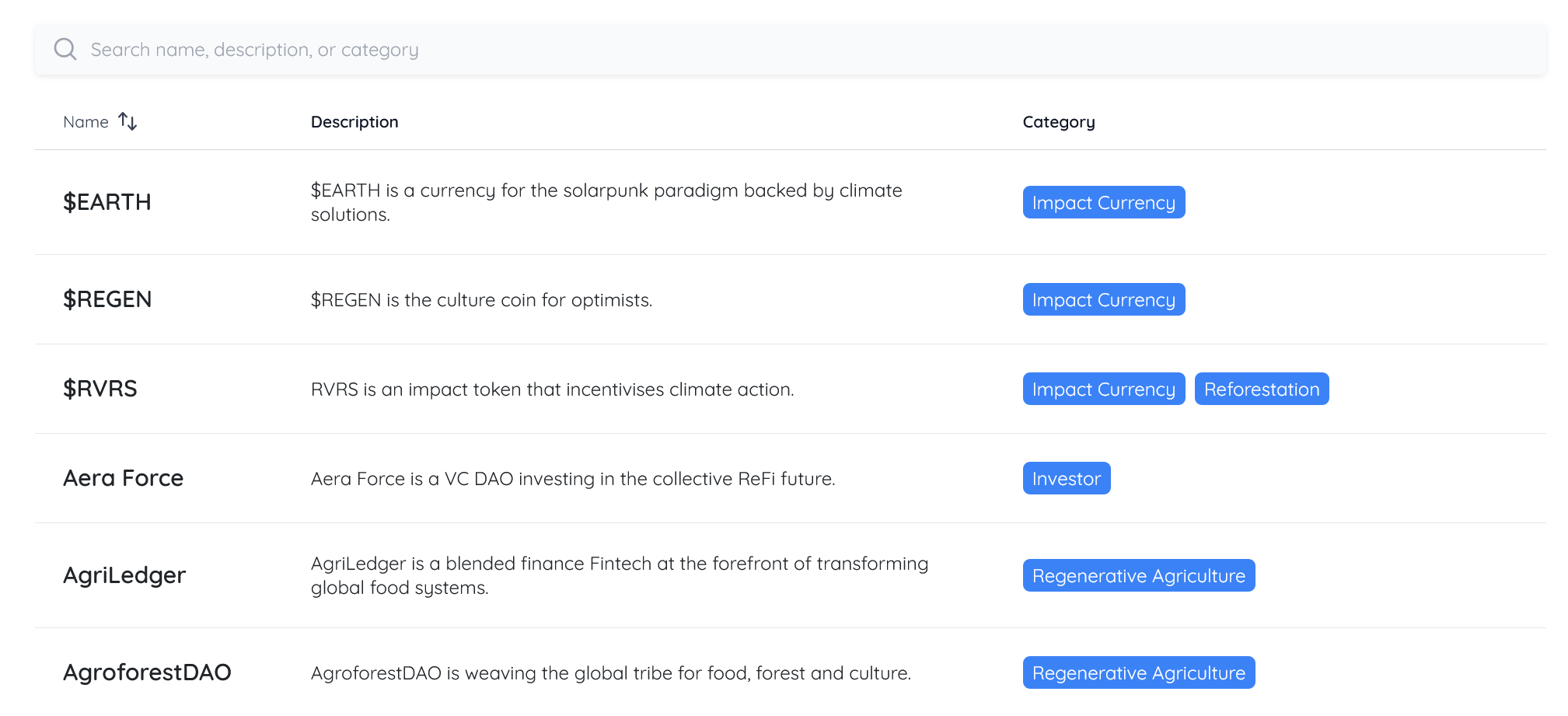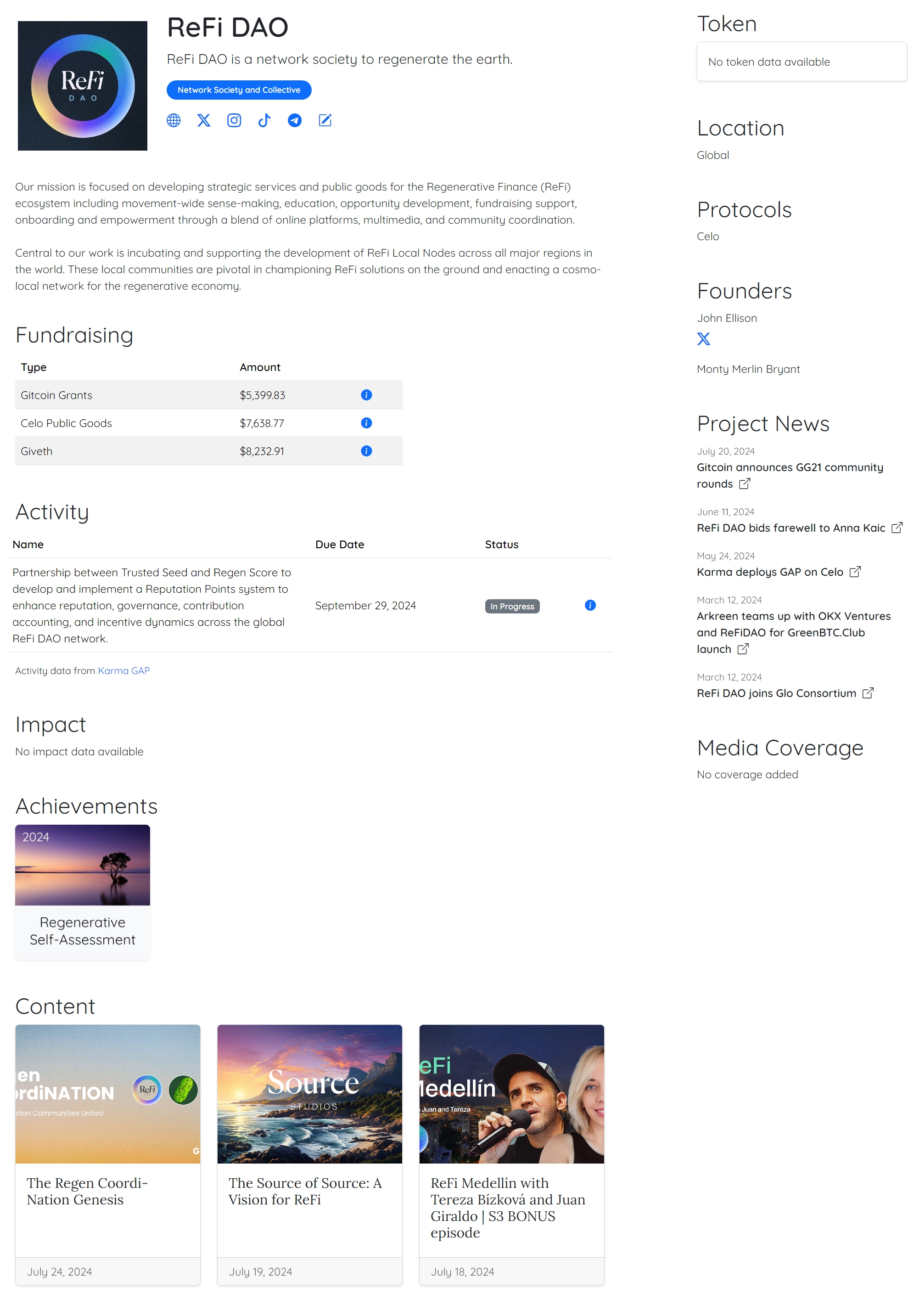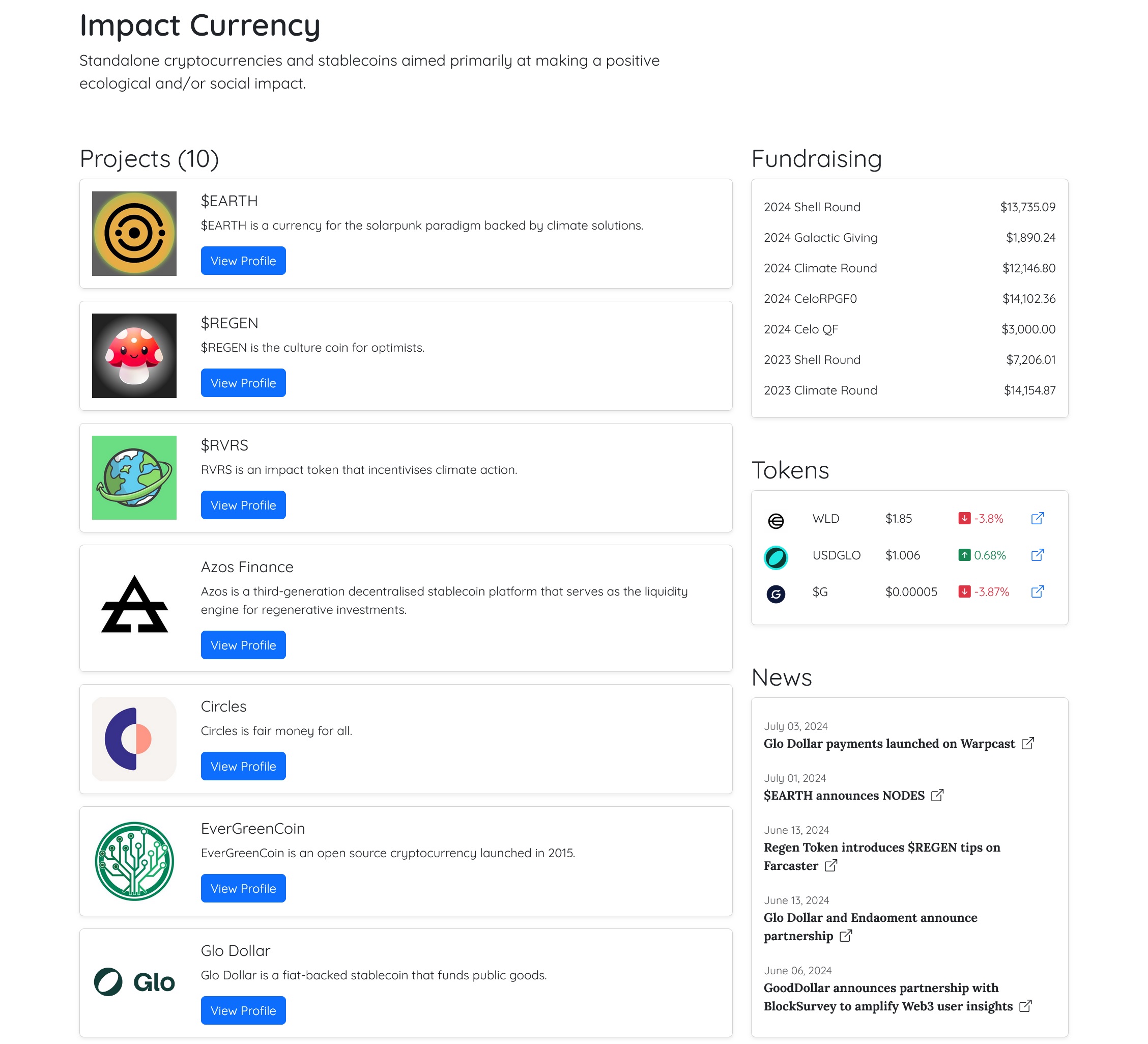Last week, we announced the launch of our ReFi project database, a curated mapping of the Web3 regenerative finance space. We hope it will serve as a source of truth for the space and help new projects, in particular, establish an online footprint.

ReFi Projects | CARBON Copy
A curated database of projects operating in and adjacent to the Web3 regenerative finance (ReFi) space.
https://carboncopy.news/projects/
Methodology
How did we decide which projects to include? We used the following criteria:
- The project is or aims to make ecological and/or social impact
- The project uses Web3 as part of its solution (not just for fundraising) and/or provides Web3-powered tools and services to ReFi projects and/or works in Web3 education.
Features
The database has three core features:
Searchable project listing
All of the projects are accessible in one paged list. You can search by name, description, or category or simply browse through the list to get a better understanding of the projects in it.

Clicking on the project name takes you to its profile page, while clicking on the category badge takes you to a category profile page.
Project profile page
Each project has its own dedicated profile page. On it, we display basic information, such as description, category, contacts, location, protocols, and founders, as well as news items, media coverage, fundraising history, token price, and a content feed.
In the near future, we are looking to add Karma GAP milestone data, more fundraising data, and impact metrics.

The "Achievements" section has only one achievement for now: a regenerative self-assessment survey designed by Kate Bennett. It helps projects understand how regenerative their impact and organisation are by asking 32 questions.
It's currently in beta mode but will be launched officially soon. Feel free to give it a try now, if you'd like.
Category profile page
Each category in our taxonomy has its own dedicated page with aggregated data. You can find the list of projects in the category, aggregate fundraising data by round/type, token price data, and a feed of news items.

We aim to add more aggregated data as it becomes available on the project profile pages.
X Space recap
Wee recently hosted an X Space with ReFi OG Pranav Khanna to discuss the database and its future in greater detail. Here is a recap of the conversation:
Value of database as a public good
- A great entry point for people coming into the ReFi space
- Projects can now easily find other projects working above or below them in their value chain
What else should be added
- From an investor perspective, financials and other metrics would be useful.
- Karma GAP milestones would give a solid indication of activity levels.
- Getting projects to make impact data available via API so that it can be shown on profile page and then aggregated to show category-wide impact.
- A bioregion classification was proposed. Would be a great way to map projects to bioregions globally.
- A "last updated" metric to help viewers understand how active a project is, either based on social signals or the last time the page was updated.
Profile updates
- Given that the database will soon become to cumbersome to keep updated, a solution is needed to incentivise the community.
- A bounty system was proposed where projects could themselves pay bounties to contributors to update and verify their profile data.
- Bounties could also come from the database treasury itself.
- This raised the question of what model should be used.
- The wiki model was proposed, as was the subversion model (similar to Github).
- Another question was around which data can be updated.
- The general thinking is that most static data can be updated, but anything coming from external sources can't (unless an error is found).
Ownership verification
- Should owners be able to "claim" a project and, if so, how to prove that someone in fact owns a project?
- ENS ownership, domain ownership verification, and a few other solutions were discussed, but more thought needs to be put into it.
- One thought was to charge a small fee to claim as a way of bolstering the treasury.
- This could increase the number of bounties available for updates.
- One suggestion was that a project could have multiple owners/contributors
Blockchain?
- One major question is whether any of the project data should be stored on-chain, similar to how Gitcoin does it.
- This would probably help with ownership verification and contribution bounties but would add complexity.
- A potential benefit of blockchain integration is the likelihood of ecosystem funding, such as from Optimism or Celo.
- The other question was how blockchain would look. Would it store snapshots (which would enable people to see the evolution of a page) or just a hash to IPFS or something else?
A trade organisation
- The original thinking for the database was having a separate DAO to oversee it.
- The point was made that it's unlikely that another DAO is needed when we already have Let's GROW DAO and Climate Coordination Network and others.
- The end goal seems to be a DAO that can act as a trade organisation for ReFi and have a seat at the larger Web3 and climate finance tables.
- An ecosystem taxonomy with aggregate data is a foundational part of this organisation.
- Collaboration between CARBON Copy and Let's GROW DAO would make perfect sense as the basis for such an organisation.
Next steps
The immediate next steps for the project database are:
- Add additional fundraising data
- Karma GAP milestone data
- Launch the regenerative self-assessment survey
- Explore integration of available impact data for certain projects
- Collaboration with Let's GROW DAO
A note to ReFi projects
Please reach out if you:
- Are a ReFi project and not in the list
- Spot any errors on your profile page
- Have any questions, comments, or concerns about the database
We'd love to hear from you!
More by CARBON Copy Editor

The ReFi Funding Trilemma


